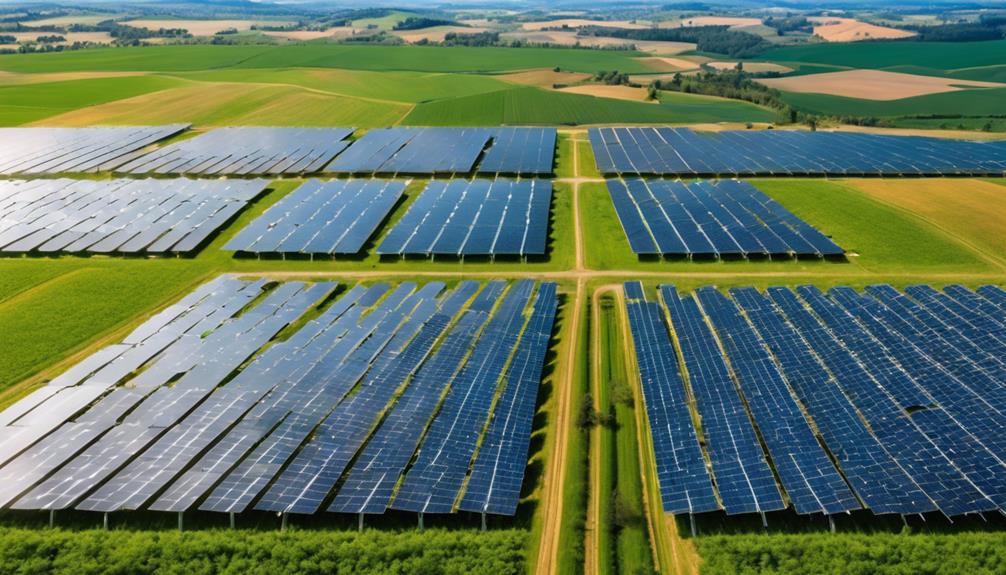
Industrial solar panels are becoming increasingly vital in today’s energy landscape. As businesses strive to reduce their carbon footprints and energy costs, the adoption of solar technology has surged. In this comprehensive guide, we will explore the benefits, types, installation processes, and future trends of industrial solar panels. By the end of this article, you will have a thorough understanding of why industrial solar panels are a smart investment for your business.
The Growing Importance of Industrial Solar Panels
In recent years, the focus on renewable energy has intensified, with industrial solar panels leading the charge in the shift towards sustainable energy solutions. The industrial sector is one of the largest consumers of energy, and as companies face increasing regulatory pressures and consumer demand for sustainability, solar energy provides a viable solution. By investing in industrial solar panels, businesses can significantly reduce their dependence on fossil fuels, lower their greenhouse gas emissions, and contribute to a cleaner environment. Furthermore, the financial incentives, including tax credits and rebates, make the transition to solar energy not just environmentally responsible but also economically advantageous.
Benefits of Using Industrial Solar Panels
One of the primary benefits of industrial solar panels is cost savings. Once installed, these systems can dramatically reduce electricity bills by harnessing the sun’s free energy. Additionally, businesses can protect themselves against rising energy costs, which can fluctuate due to market dynamics. Beyond financial savings, industrial solar panels enhance a company’s reputation. By adopting sustainable practices, businesses can attract eco-conscious consumers and investors. Furthermore, solar panels require minimal maintenance, providing long-term reliability and performance. Lastly, many governments offer incentives for solar adoption, making the initial investment more manageable.
Types of Industrial Solar Panels
When considering industrial solar panels, it’s essential to understand the different types available. The most common types include monocrystalline, polycrystalline, and thin-film solar panels. Monocrystalline panels are known for their high efficiency and sleek design, making them an excellent choice for businesses with limited roof space. Polycrystalline panels, while slightly less efficient, are generally more affordable and are suitable for larger installations. Thin-film solar panels are lightweight and flexible, allowing for a variety of applications, though they typically have lower efficiency rates. Each type has its advantages, and the best choice for your business will depend on your specific energy needs, budget, and installation conditions.
How to Choose the Right Industrial Solar Panels for Your Business
Choosing the right industrial solar panels involves several factors. First, assess your energy consumption to determine the size and capacity of the system you need. Consult with a solar energy expert to analyze your energy usage patterns and future growth projections. Next, consider the space available for installation—whether on rooftops, ground-mounted systems, or carports. The orientation and tilt of the panels can significantly impact efficiency, so choose a location that maximizes sunlight exposure. Additionally, evaluate the financial incentives available in your region, as this can influence your budget and return on investment. Finally, research reputable solar energy providers with a track record of successful installations in your industry.
The Installation Process of Industrial Solar Panels
The installation process for industrial solar panels typically involves several key steps. Initially, a thorough site assessment is conducted to determine the best system design based on your energy needs and available space. Following this, the design phase includes selecting the type of panels, inverter, and other components. Once the design is finalized, the installation team will begin the physical work, which includes mounting the panels, wiring, and connecting the system to the grid. After installation, the system must undergo testing to ensure it operates efficiently and meets local regulations. Finally, regular maintenance and monitoring are essential to maximize the lifespan and performance of your solar energy system.
Financing Options for Industrial Solar Panels
Financing industrial solar panels can be a concern for many businesses, but there are various options available to facilitate this transition. One popular option is a Power Purchase Agreement (PPA), where a third-party investor owns and operates the solar system while the business pays for the electricity produced at a fixed rate. This arrangement allows companies to enjoy immediate savings without the upfront costs of purchasing the system. Another option is solar loans, which enable businesses to finance the purchase of solar panels while benefiting from tax credits and rebates. Additionally, many states offer renewable energy grants, making solar energy more accessible for businesses of all sizes. Understanding these financing options can help businesses make informed decisions regarding their energy investments.
The Future of Industrial Solar Panels
The future of industrial solar panels looks promising, driven by technological advancements and increasing environmental awareness. As solar technology continues to evolve, we can expect improvements in efficiency, energy storage, and integration with smart grid systems. Companies are also exploring innovative solutions like solar canopies and building-integrated photovoltaics (BIPV), which seamlessly blend solar technology into existing structures. Furthermore, as global energy policies shift towards sustainability, the demand for industrial solar panels is expected to rise, leading to more competitive pricing and better financing options. Businesses that invest in solar energy now will not only benefit from immediate savings but will also position themselves as leaders in the sustainable energy transition.
Conclusion: Embracing Industrial Solar Panels for a Sustainable Future
In conclusion, industrial solar panels offer a multitude of benefits for businesses looking to reduce costs and enhance their sustainability efforts. By understanding the importance, benefits, types, and installation processes associated with these systems, companies can make informed decisions about their energy strategies. With various financing options available and a promising future ahead, there has never been a better time to embrace solar energy. By investing in industrial solar panels, businesses not only contribute to a healthier planet but also secure a more sustainable and economically viable future. Embrace this transformative technology and propel your business into the next generation of energy solutions.





